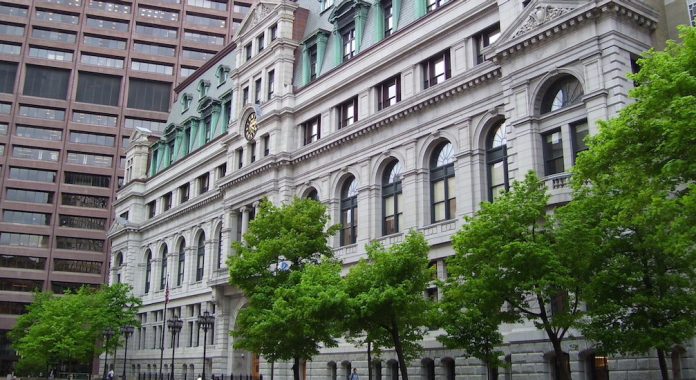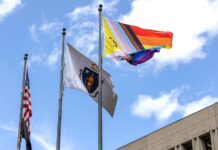For the first time, the Massachusetts Supreme Judicial Court “made explicit that the state and federal constitutions prohibit the exclusion of individuals from a jury simply because of their sexual orientation,” writes GLBTQ Legal Advocates & Defenders (GLAD) in a recent press release.
“This consequential ruling will have resounding implications for the LGBTQ community as a constitutionally protected class,” says GLAD, which explains:
An impartial jury is a cornerstone of our criminal justice system and a prerequisite of a fair trial. It’s also an ideal we have struggled to realize throughout our country’s history, as the experiences of Black Americans, people of color, and women demonstrate. To have one’s identity affirmed as protected from discrimination is a badge of equal belonging in the community and an antidote to prosecutions of people because of who they are.
In Commonwealth v. Carter, the SJC advanced the law to require a prosecutor to provide race-neutral reasons for striking individuals from the pool of possible jurors. Defense counsel objected when a young Black man of similar age as the defendants was excused from the jury for no apparent reason. The lower court overruled the objection, reasoning that racial discrimination was not in play because there were other people of color on the jury. The SJC held that this was wrong because judges must examine “all relevant circumstances,” not solely the racial composition of the jury, especially where the excluded juror “uniquely could be deemed a ‘peer’ of the defendants” because of race, age, and gender.
The lower court had also refused to consider defense counsel’s objection about two possibly LGBTQ jurors because the law did not require a prosecutor to justify such exclusions. The SJC changed the law with the Carter decision, finding that “a prospective juror’s sexual orientation is not at all relevant to whether that person is able to serve as an impartial juror” and that it is therefore impermissible to remove potential jurors for being gay, lesbian or bisexual.
GLAD partnered with Black and Pink MA, the Charles Hamilton Houston Institute for Race and Justice, and Lambda Legal to argue in support of the defendants on the basis that they were denied a fair trial because of these discriminatory exclusions.
Read more on GLAD’s website posting about this important decision.
Not a subscriber? Sign up today for a free subscription to Boston Spirit magazine, New England’s premier LGBT magazine. We will send you a copy of Boston Spirit six times per year and we never sell/rent our subscriber information. Click HERE to sign up!









